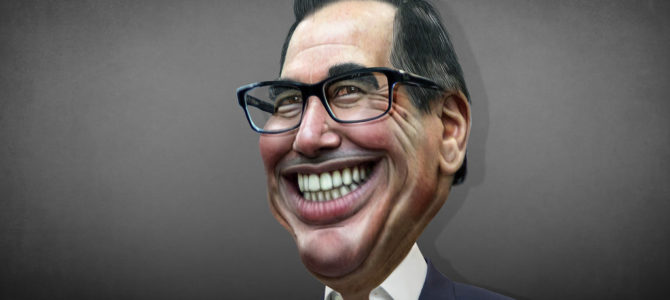
During his final years in office, Barack Obama leaned heavily on attempts to bypass an uncooperative Congress and use “a pen and a phone” to achieve his goals by executive order, whether or not he had the authority to do so. A few of us pointed out at the time that he was encouraging the abuse of powers that his successors could abuse for different purposes.
So far, Donald Trump has been using and abusing his executive powers to reverse many of Obama’s unilateral policies, as well as to roll back regulations and prosecute his trade war. In many cases, he has been using power that Congress clearly gave to executive-branch agencies, such as granting or withdrawing a waiver to California to impose stricter fuel-efficiency standards on automobiles.
In most cases, government should never have claimed those powers in the first place, nor should they have been unconstitutionally delegated away from the legislative branch. But at least we can say that when the Left sees President Trump exercising the powers they schemed to give him, they don’t have much right to complain.
Now the Trump administration is considering doing something I strongly support—indexing capital gains to account for inflation—but in a way that is constitutionally dubious at best.
Steven Mnuchin, the Treasury secretary, said in an interview on the sidelines of the Group of 20 summit meeting in Argentina this month that his department was studying whether it could use its regulatory powers to allow Americans to account for inflation in determining capital gains tax liabilities. The Treasury Department could change the definition of ‘cost’ for calculating capital gains, allowing taxpayers to adjust the initial value of an asset, such as a home or a share of stock, for inflation when it sells.
‘If it can’t get done through a legislation process, we will look at what tools at Treasury we have to do it on our own and we’ll consider that,’ Mr. Mnuchin said, emphasizing that he had not concluded whether the Treasury Department had the authority to act alone. ‘We are studying that internally, and we are also studying the economic costs and the impact on growth.’
There are times Congress grants an executive agency the power to make a specific decision, such as whether a given substance is a “pollutant” supposedly based on the scientific findings of the agency’s experts (although too often just based on the political findings of bureaucrats). In this case, however, Mnuchin is floating the idea of redefining an ordinary word in a way that seems designed to alter the plain and established meaning of the law. (This is always a big temptation.)
This is why George H.W. Bush’s Treasury Department “determined that redefining ‘cost’ by regulatory fiat would be illegal—a conclusion buttressed by the Justice Department’s Office of Legal Counsel, which found that ‘cost’ means the price that was paid for something.”
The most convincing argument against this redefinition of “cost” is that it could not legally be limited to capital gains: “the department would have to make decisions about what types of assets would be indexed and…it would essentially be picking winners and losers…. [C]harities and other entities could sue the Treasury Department if it tried to make the change.”
If you want to see the legal case in favor of the change, read it here. I would find it a lot more convincing if it didn’t rely on “Chevron deference”—the supposed deference due to executive regulatory agencies by the courts—which raises the ironic possibility that if this issue were ever to come before the Supreme Court, it could get struck down thanks to Neil Gorsuch. At any rate, I find the case a bit of a stretch, and I’m uncomfortable when presidents stretch their powers.
A decision about the meaning of a common word, and one with wide-ranging impact on tax and accounting law, should be in the domain of Congress. Indexing capital gains for inflation is an excellent idea. We are already taxed on so many things that it compounds the injustice to tax us on illusory gains created by bad monetary policy.
So this is a reform that the Republican Congress probably should have gotten around to in its recent tax law. Maybe they will eventually rouse themselves to do it in the future, although given the record of this Congress, and the likelihood that Republicans will lose seats in the coming election, I doubt it.
That’s too bad, but this is why we should be expecting more from Congress, not seeking to siphon more of its authority away to the executive. In the long term, the cause of small government is not going to be well served by following Obama’s example and asserting dubious new powers for the president’s pen and phone.
Robert Tracinski is a senior writer for The Federalist. His work can also be found at The Tracinski Letter.









